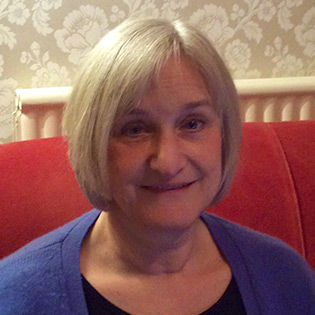More different than you might think: variation in student writing as revealed by a new MDA analysis of BAWE
- Location
- Metallurgy and Materials (GA03)
- Dates
- Tuesday 21 February 2017 (16:15-17:30)
 Professor Hilary Nesi
Professor Hilary Nesi
- Speaker: Professor Hilary Nesi (Coventry University)
- Venue: Room GA03, Metallurgy and Materials Building
Abstract
The British Academic Written English (BAWE) corpus contains about 6.5 million words of proficient university student writing collected from British universities in the first decade of the 21st century, categorised in terms of ‘genre families’ and distributed fairly equally across levels of study and disciplinary groupings (see www.coventry.ac.uk/bawe). BAWE has been named as a major data source in more than 80 publications, and has been examined from many linguistic perspectives, for example in terms of tense, modality and lexical cohesion.
The techniques of multidimensional analysis (MDA) complement studies of individual corpus aspects, because they permit multiple aspects to be examined simultaneously, and enable mapping of their distribution across different datasets. In the case of BAWE, we can use MDA to compare linguistic features across levels of study, disciplines and genre families. The first BAWE MDA study was made with reference to the dimensions identified by Biber (1988) when comparing spoken and written registers. The second, BAWE2016, has identified new BAWE-specific dimensions and is a more delicate characterisation of the writing produced by British university students, revealing two distinct ‘stance’ registers and the two distinct ‘density’ registers.
The four dimensions identified for BAWE2016 are: (1) Compressed Procedural Information vs Stance Towards the Work of Others; (2) Personal Stance; (3) Possible Events vs Completed Events; and (4) Informational Density. My talk will place various subsets of BAWE along the four dimensions, and provide lots of examples from the corpus to show how the analysis sheds light on the great variations between university assignments produced at different levels of study, in different disciplines, in response to different types of task. The findings have obvious pedagogical implications - for writing tutors, materials writers, and all those involved in the assessment of university student writing.
Short biography
Hilary Nesi is Professor in English Language at Coventry University. Her research activities mostly concern corpus development and analysis, the discourse of English for academic purposes, and the design and use of dictionaries and reference tools for academic contexts. She was principal investigator for the projects to create the BASE corpus of British Academic Spoken English the BAWE corpus of British Academic Written English, and she recently led a project to produce online academic writing materials for the British Council ‘Learn English’ website. She is the co-author of Genres across the Disciplines: Student writing in higher education (Cambridge University Press, 2012).